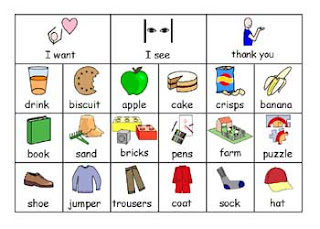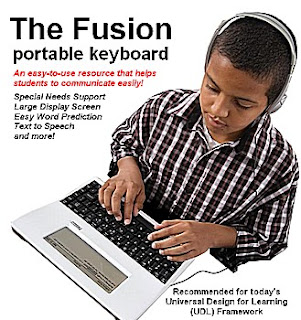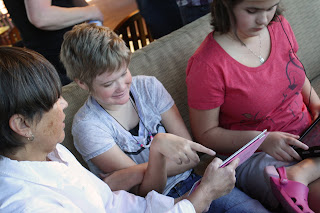Who I Am
I am an autistic guy with a message. I spent the first half of my life completely trapped in silence. The second – on becoming a free soul. I had to fight to get an education but I succeeded, graduating high school with a diploma and a 3.9 GPA. I am continuing my education in college. I communicate by typing on an iPad or a letter board. My first book, Ido inAutismland is an autism diary, telling the story of my symptoms, education, and journey into communication. My second book, In Two Worlds, is a novel. I hope through my work to help other autistic people find a way out of their silence too.
My Books
My newest book is now available in paperback, on Kindle, and on Smashwords!
My first book is available in paperback, Nook, Kindle, and iBook editions!
Subscribe via Email
My Videos
My NBC Video with Dr. Bruce
Click here to see the article
My Video from the LA TImes
Recent Comments
- admin on My Books
- A on Emotion Outbursts
- Marion on My Books
- Juicerxzm on My Latest Interview about Autism
- Naughty Autie on History Repeats Itself
Archives
- October 2022
- July 2022
- April 2022
- September 2021
- July 2021
- May 2021
- September 2020
- July 2020
- May 2020
- March 2020
- January 2020
- December 2019
- November 2019
- October 2019
- September 2019
- August 2019
- July 2019
- June 2019
- April 2019
- March 2019
- February 2019
- January 2019
- November 2018
- October 2018
- September 2018
- August 2018
- July 2018
- June 2018
- May 2018
- April 2018
- January 2018
- November 2017
- October 2017
- August 2017
- July 2017
- June 2017
- May 2017
- January 2017
- December 2016
- October 2016
- September 2016
- July 2016
- May 2016
- April 2016
- March 2016
- February 2016
- January 2016
- November 2015
- October 2015
- July 2015
- June 2015
- March 2015
- January 2015
- November 2014
- October 2014
- August 2014
- July 2014
- June 2014
- April 2014
- February 2014
- January 2014
- December 2013
- October 2013
- August 2013
- June 2013
- May 2013
- April 2013
- March 2013
- February 2013
- January 2013
- December 2012
- November 2012
- October 2012
- September 2012
- August 2012
- July 2012
- June 2012
- May 2012
- April 2012
- March 2012
- February 2012
- January 2012
- December 2011
- November 2011
- October 2011
- September 2011
- August 2011
- July 2011
- June 2011
- May 2011
- April 2011
- March 2011
Categories
- "high funnctioning"
- "low functioning"
- "low-functioning" autism
- AAC
- ABA
- abilities
- adolescence
- Adrienne Johnston
- Adrienne Murphy
- adversity
- advocacy
- aide
- aides
- Amazon
- American Psychiatric Association
- American Speech Language Hearing Association
- Anne Frank
- Annie Sullivan
- anxiety
- apllied Behavioral Analysis
- Apple
- apraxia
- Ariane Zurcher
- art
- ASHA
- asperger's
- assistive chat
- assistive technology
- attitude
- audiobook
- augmentative communication
- author
- autism
- autism causes
- autism education
- Autism Experience Challenge
- autism forum
- autism perceptions
- autism research
- autism society
- Autism Speaks
- Autism Spectrum Therapies
- autism symptoms
- autism theories
- autism treatments
- autistic authors
- barriers
- Ben Kuebrich
- bereavement
- Bettelheim
- Between the Lines
- blog
- body responsiveness
- book
- bookLife Award
- books by authors with autism
- brain
- Britain's Got Talent
- California Lutheran University
- camping
- cancer
- capabilities
- career
- Carly Fleischmann
- change
- choices
- civil rights
- classical music
- college
- Communication
- Communication First
- communication with a person with autism
- communicative devices
- community
- cooking
- cooking shows
- coping
- coronavirus
- courage
- CSUN speech
- Deaf Education
- death
- dentist
- depression
- diagnostic criteria
- Diego Pena
- Dillan Barmache
- disability
- disabled athletes
- disabled heroes
- discipline
- Disneyland
- dog training
- dogs
- Down Syndrome
- DSM
- Edlyn Pena PhD.
- education
- Elizabeth Bonker
- emmashopebook
- emotions
- empathy
- environment
- envy
- Erik Weihenmayer
- eugenics
- Evelyn Glennie
- exercise
- Expedition Impossible
- eye tracking
- false hope
- family
- family support
- fate
- fiction
- film review
- fine motor skills
- fitness
- Floortime
- food aversion
- France
- friends
- frustration
- future planning
- Gabrielle Giffords
- genetics
- God
- good and evil
- gratitude
- grief
- happiness
- Hari Srinivasan
- Harry Potter
- health
- Hebrew
- Helen Keller
- heroism
- high school
- hiking
- Holocasut
- hope
- human nature
- human rights
- humor
- Ido in Autismland
- Ido Kedar
- idoinautismland
- IEP
- importance of education
- impulsivity
- in memory
- In the Author's Voice
- In Two Worlds
- independence
- initiation
- inspiration
- institutions
- intelligence
- intelligence testing
- interview
- iPad
- IQ testing
- Ireland
- isolation
- Italian
- Ivar Lovaas
- Jacques Pepin
- japanese
- Jaswal
- keyboards
- language processing
- Larry Bissonette
- le packing
- Leaders Around Me- book
- Lee Ridley
- Lee Romney
- letter board
- letterboard
- letterboards
- loneliness
- Los Angeles Times
- Lost Voice Guy
- luck
- mainstreaming
- Mandy Harvey
- medical
- medication
- memoir
- Memorial Day
- mentoring
- middle school
- mind/body communication
- missing cat
- mosaics
- Moses
- Moses Aaron Cooperative
- motivation
- motor planning
- motvation
- mourning
- muscle development
- My Mission
- Naoki Higashida
- nature
- Nature Journal
- NBC
- neurological instability
- neurology
- neuroplasticity
- news
- Nick Vujicic
- non-verbal
- non-verbal autism
- non-verbal communication
- nonspeaking autism
- nonverbal autism
- Norman Doidge
- NPR
- occupational therapy
- ocean
- Olympics
- optimism
- Oscar Pistorius
- OT
- outbursts
- overwhelming
- parenting Spectrum series
- parents
- Parisa Khosravi
- Passover
- physical fitness
- piano
- poetry
- Point to Freedom
- potential
- presumption of competence
- professionals
- progress
- prompts
- psychotherapy
- public speaking
- Publisher's Weekly
- rant
- Rapid Prompting Method
- rattlesnakes
- religion
- resilence
- resources
- Richard Dawkins
- RPM
- russian
- sadness
- safety
- Samuel Capozzi
- school
- school support
- science
- seasons
- self advocacy
- self control
- Self determination
- self stimulatory behavior
- self-acceptance
- self-help
- self-regulation
- senses
- sensory overload
- sensory overwhelmed
- sensory processing
- sensory system
- sesnory overwhelmed
- shyness
- skeptics
- social behavior
- social interaction
- Soma
- Soma Mukhopadhyay
- Sondra William
- sound sensitivity
- Spanish
- special education
- special needs
- Special-fit
- Spectrum of Opportunity conference
- speech therapy
- spirituality
- spring weather
- squirrels
- Stephen Hawking
- stims
- strategies
- stress
- stuckness
- Sue Finnes
- summer vacation
- support
- Sydney Edmond
- synesthesia
- Tami Barmache
- tantrums
- teachers
- Team Hoyt
- ted talk
- Temple Grandin
- Thanksgiving
- The Brain that Changes Itself
- The King's Speech
- The Reason I Jump
- The Smile Train
- theory of mind
- Tito Mukhopadhyay. nonverbal autism
- Tito Rajarshi Mukhopadhyay
- tolerance
- tornado
- translation
- typers
- typing
- UN
- Uncategorized
- understanding autism
- University of Virginia
- Unlocking Voices
- unmotivated students
- Vaish Sarathy
- voiceAmerica
- Walk Now
- Wall Street Journal
- working out
- world
- World Autism Awareness Day
- Wretches and Jabberers
- Yoram Bonneh
Meta










